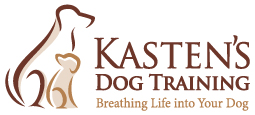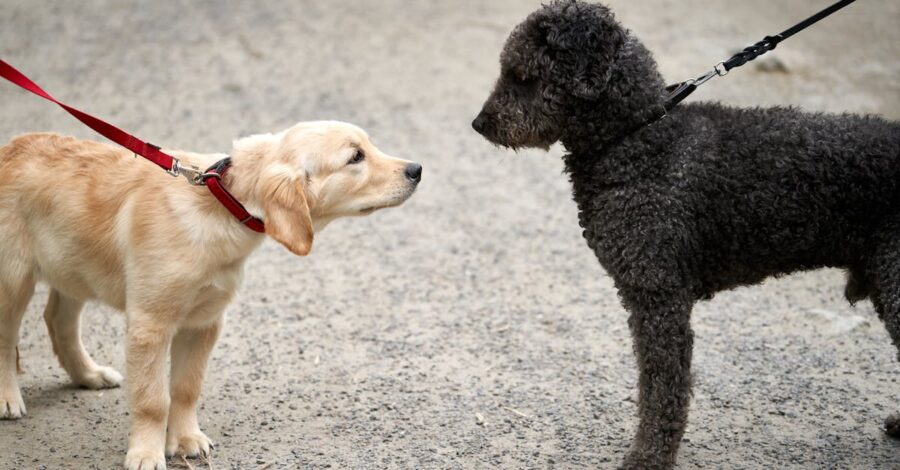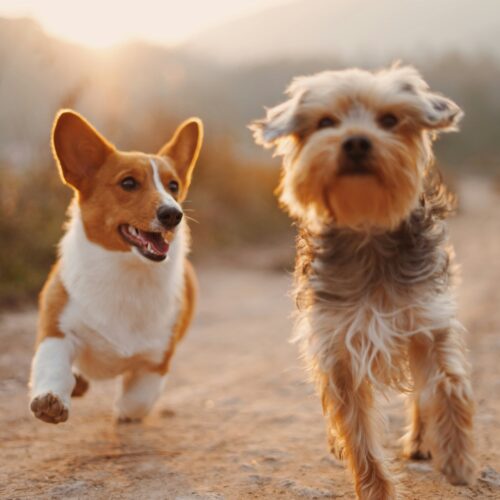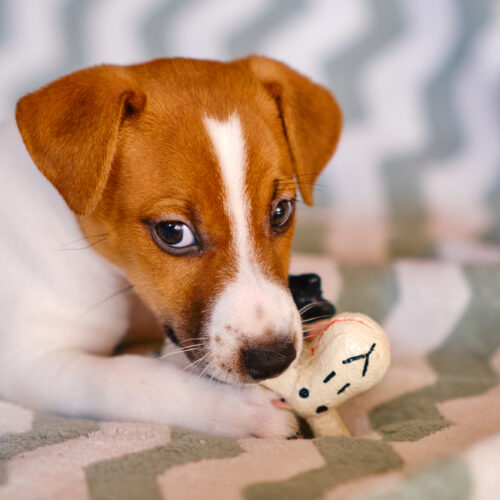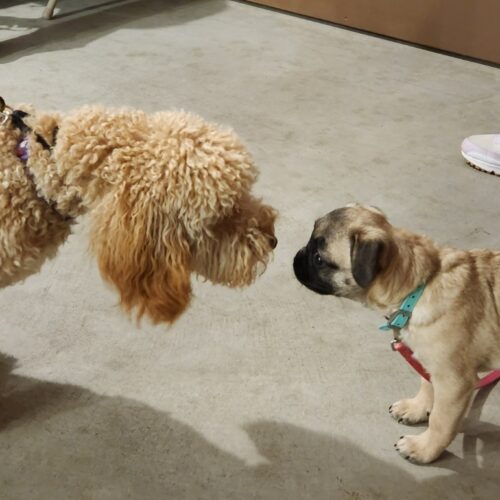Socializing your puppy is one of the most important things you can do to ensure they grow into a confident, friendly, and well-behaved adult dog. It involves introducing your puppy to a wide variety of new experiences, people, places, and other animals in a positive and controlled manner. The critical socialization window to socialize your puppy is typically between 3 and 17 weeks of age, during which they are most impressionable and receptive to new things. Positive exposure during this period can significantly reduce the likelihood of developing fear, anxiety, or aggression later in life.
Why is Puppy Socialization Crucial?
A well-socialized puppy is more likely to adapt to new situations with ease, react calmly to unexpected stimuli, and enjoy interactions with people and other dogs. This not only makes them a joy to live with but also reduces stress for both you and your dog in everyday situations, from vet visits to walks in the park.
1. Begin Puppy Socialization by Introducing them to Diverse People
Socialize your puppy by exposing them to a broad spectrum of individuals. This includes people of different ages, ethnicities, and appearances (e.g., wearing hats, glasses, or using mobility aids). Encourage gentle, positive interactions where people offer treats and speak in soft, friendly tones. When working on this, always supervise to ensure your puppy feels safe and comfortable, and never force an interaction. The goal is for your puppy to associate new people with pleasant experiences.
2. Expose Them to Various Environments and Sounds
Take your puppy on short, positive outings to different locations. This could involve carrying them to a local park (before they are fully vaccinated), a pet-friendly store, or a quiet street corner. The aim is to introduce them to different surfaces (grass, pavement, carpet), sights (traffic, bicycles, children playing), and sounds (doorbells, vacuum cleaners, sirens, different types of music). Help them feed off of your confident, relaxed demeanor. Do not attempt to continually reassure your puppy by repeating, “It’s ok.” It is important to remember, keep these experiences brief and positive, ending before your puppy shows signs of being overwhelmed. And of course, reward calm behavior with praise, touch, and treats.
3. Arrange Positive Interactions with Other Dogs
Once your veterinarian gives the go-ahead, carefully introduce your puppy to healthy, vaccinated, and well-tempered adult dogs. These interactions should be supervised and positive. Puppy classes are an excellent, controlled environment for safe play and learning appropriate social cues from other puppies and adult dogs. Avoid crowded or uncontrolled environments like dog parks until your puppy is older, fully vaccinated, and has developed good social skills.
4. Familiarize Them with Everyday Objects and Experiences
Desensitize your puppy to common household items and routines. This includes the vacuum cleaner, the doorbell, someone opening an umbrella, or even being gently handled for grooming (brushing, nail trims, ear checks). Introduce these things gradually, pairing them with high-value treats and praise to create positive associations. The goal is to make these everyday occurrences non-threatening.
Key Considerations for Successful Puppy Socialization
- Keep it Positive: All interactions and exposures should be positive. Never force your puppy into a situation that frightens them. If your puppy seems overwhelmed, remove them from the situation and try again later with less intensity.
- Go at Their Pace: Every puppy has a unique personality. Some are naturally more outgoing, while others are more timid. Pay close attention to your puppy’s body language. If they are showing signs of fear (tail tucked, cowering, trying to hide), back off and try a less intense version of the exposure.
- Prioritize Safety: Always ensure your puppy is safe from traumatic experiences. A single negative encounter can have lasting effects.
- Continue Beyond Puppyhood: Socialization is not a one-time event; it’s an ongoing process. Continue to expose your dog to new situations, people, and places throughout their life to maintain their confidence and social skills.
By investing in early and consistent puppy socialization, you are laying the foundation for a confident, adaptable, and happy dog that will enrich your life for years to come.
Contact Us Today!
At Kasten’s Dog Training, we remain committed to helping you and your dog build a strong, positive relationship through practical training. Visit our website or contact us today to learn more about our services so we can assist you in reaching your training goals!
